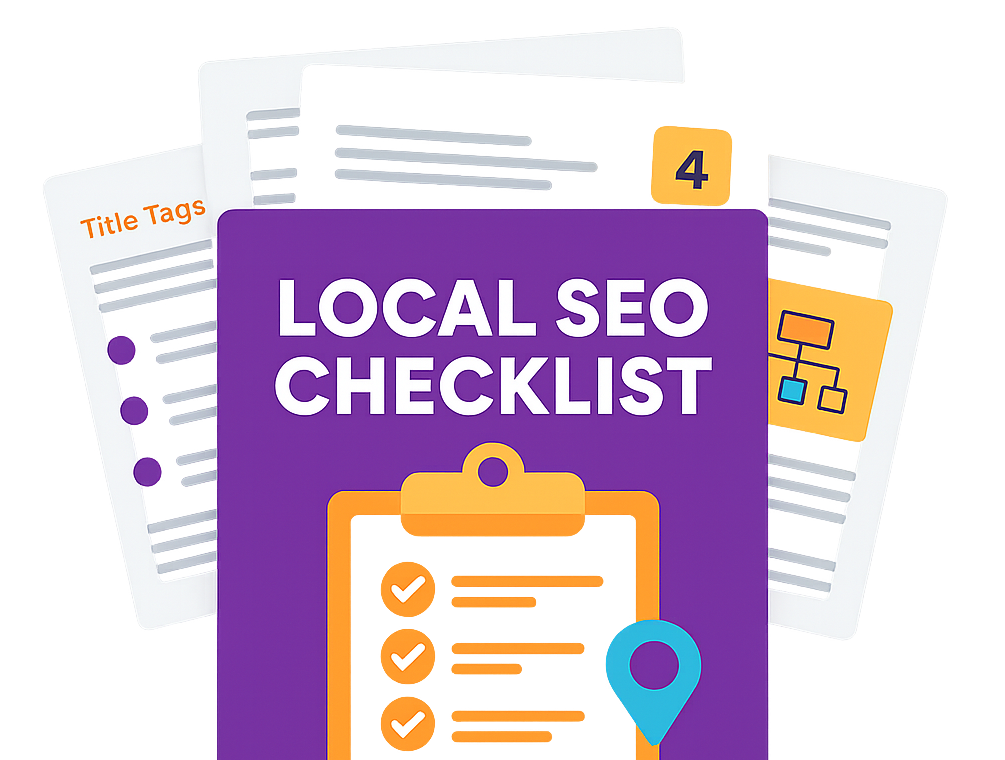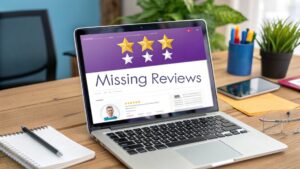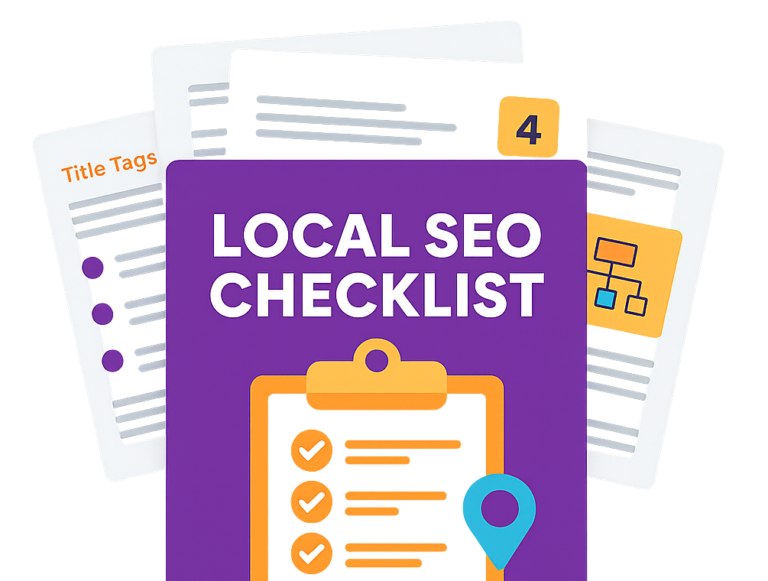For years, Google Analytics has been the default tool for understanding website traffic. However, a growing number of businesses, from startups in Cambridgeshire to established e-commerce stores, are now actively seeking out powerful Google Analytics alternatives. The reasons for this shift are varied, ranging from the desire for a more straightforward interface to a stronger focus on data privacy and GDPR compliance. A significant catalyst has also been the recent shift in Google's platform, with many businesses reassessing their needs following what has been called the end of Google Universal Analytics. This has created an opportunity to explore tools that might be better aligned with specific business goals, whether that's increasing online sales or attracting local customers.
This comprehensive guide is designed to help you navigate this new landscape. We will provide an in-depth analysis of the top analytics platforms available today, moving beyond surface-level descriptions to offer practical, real-world insights. Our goal is to equip you with the information needed to select the best solution for your unique requirements, whether you're a marketing manager looking to enhance your SEO efforts or a growth-stage company operating on a limited budget.
Inside, you will find detailed profiles for each alternative, complete with screenshots and direct links. We'll break down:
- Core Feature Sets: What each platform actually does and who it's built for.
- Pricing and Tiers: Clear cost structures to match your budget.
- Pros and Cons: An honest assessment of strengths and limitations.
- Ideal Use Cases: Scenarios where each tool truly excels.
- Migration and Implementation: Practical tips for getting started.
Forget generic lists. This resource is your strategic guide to finding a web analytics tool that gives you the clarity and control you need to grow your business effectively. Let's find the perfect fit for you.
1. Matomo
Matomo stands out as a powerful open-source platform, positioning itself as one of the leading Google Analytics alternatives for organisations that prioritise data privacy and ownership. It gives you 100% control over your analytics data, ensuring you are not using it for any other purpose, a key differentiator from Google Analytics. This makes it an exceptional choice for businesses in the UK and Europe who must adhere to strict GDPR regulations.
The platform offers two primary deployment options: a cloud-hosted version for ease of use and a self-hosted 'On-Premise' version for complete control. The self-hosted option is free to use but requires technical expertise for setup and maintenance on your own servers. Matomo provides a comprehensive suite of features, including real-time analytics, customisable dashboards, heatmaps, session recordings, and A/B testing, many of which are premium add-ons.
Key Features & Considerations
- Data Ownership: You own all your website data. With the self-hosted version, it resides on your servers.
- No Data Sampling: Matomo provides 100% accurate reports without sampling, giving you reliable data for critical decisions.
- Privacy Compliance: It's built with privacy in mind, offering features to anonymise data and easily comply with GDPR and CCPA.
- GA Data Import: A key benefit is the ability to import your historical data directly from Google Analytics, ensuring a seamless transition.
The data gathered can be a crucial component when you conduct a comprehensive technical SEO audit, providing insights into user behaviour that inform site structure and performance enhancements.
Website: https://matomo.org/
2. Fathom Analytics
Fathom Analytics presents a compelling case for businesses prioritising simplicity and privacy. As a streamlined Google Analytics alternative, it focuses on delivering essential website metrics without the complexity of larger platforms. Its standout feature is its cookie-free tracking method, which means you don't need to display annoying cookie banners, ensuring full compliance with GDPR, CCPA, and PECR from the outset. This makes it a fantastic choice for UK-based bloggers, freelancers, and small businesses who value user trust and a clean user experience.
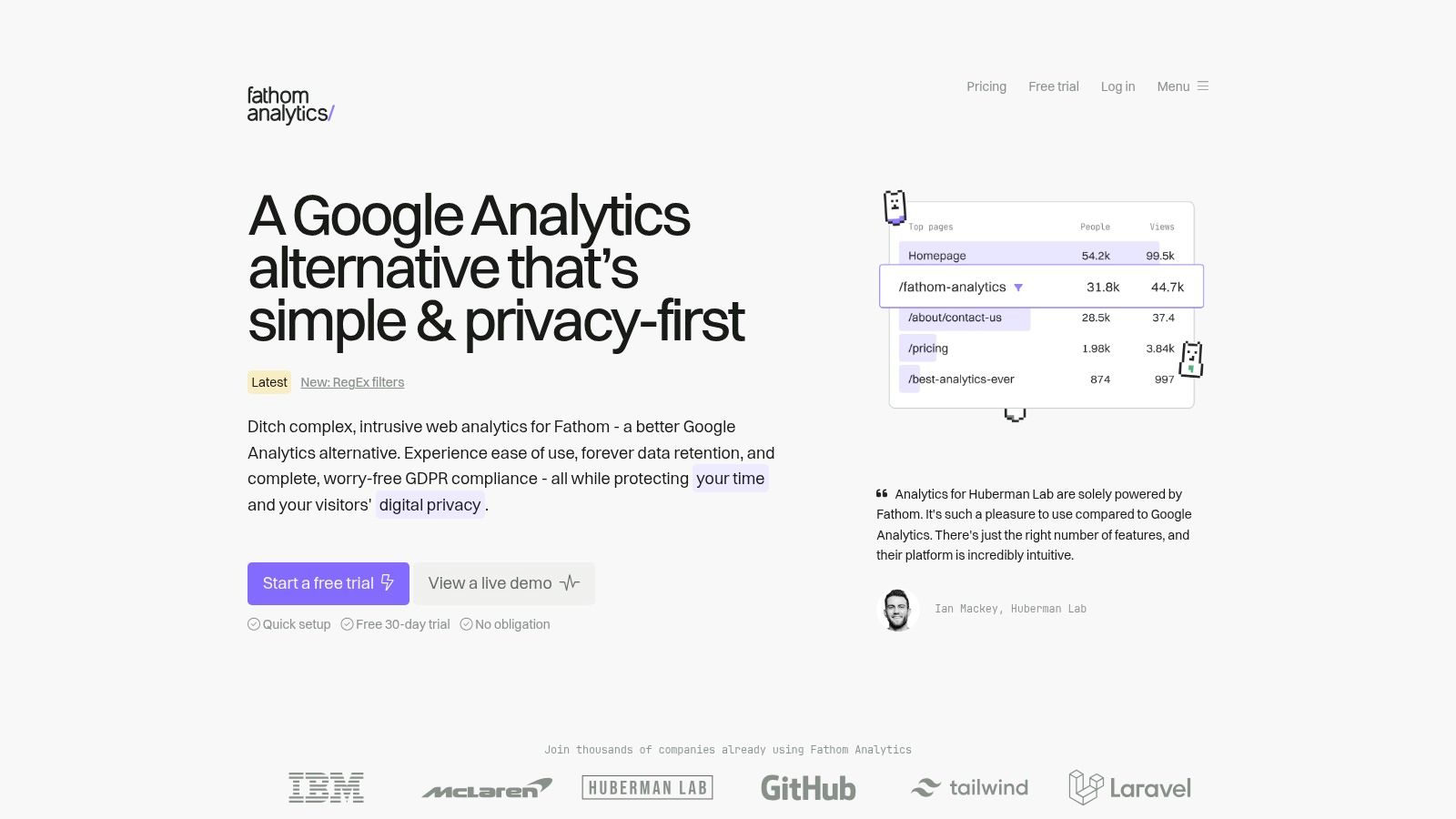
The platform is built around a single, elegant dashboard that displays all your key data points in real time, such as unique visitors, page views, bounce rate, and average time on site. Its lightweight script is a significant advantage, ensuring your website's loading speed is not compromised. While Fathom does not offer a free plan, its pricing is transparent and scales based on monthly page views. The setup is incredibly straightforward, allowing you to get up and running in minutes without needing technical expertise.
Key Features & Considerations
- Privacy by Design: No cookies are used, and all data processing is fully compliant with privacy regulations, respecting visitor anonymity.
- Lightweight & Fast: The tracking script is tiny, which helps maintain fast page load times and improve the overall user experience.
- Simple Interface: Presents all your important stats on one clean, easy-to-understand page, avoiding data overload.
- Ad-Blocker Bypass: Fathom's tracking method is often able to bypass ad blockers, providing more accurate visitor data than many competitors.
The insights gathered, though straightforward, are invaluable for understanding your audience and can directly inform your local SEO strategy, helping you see which content resonates most with your visitors.
Website: https://usefathom.com/
3. Piwik PRO
Piwik PRO presents itself as a privacy-focused analytics suite, making it a compelling Google Analytics alternative for organisations handling sensitive user information. It’s designed to provide granular control over data while delivering powerful insights, which is particularly beneficial for businesses in sectors like healthcare, finance, and government that must adhere to stringent data protection laws such as GDPR, CCPA, and HIPAA. The platform successfully balances comprehensive analytics capabilities with a user-centric approach to privacy.
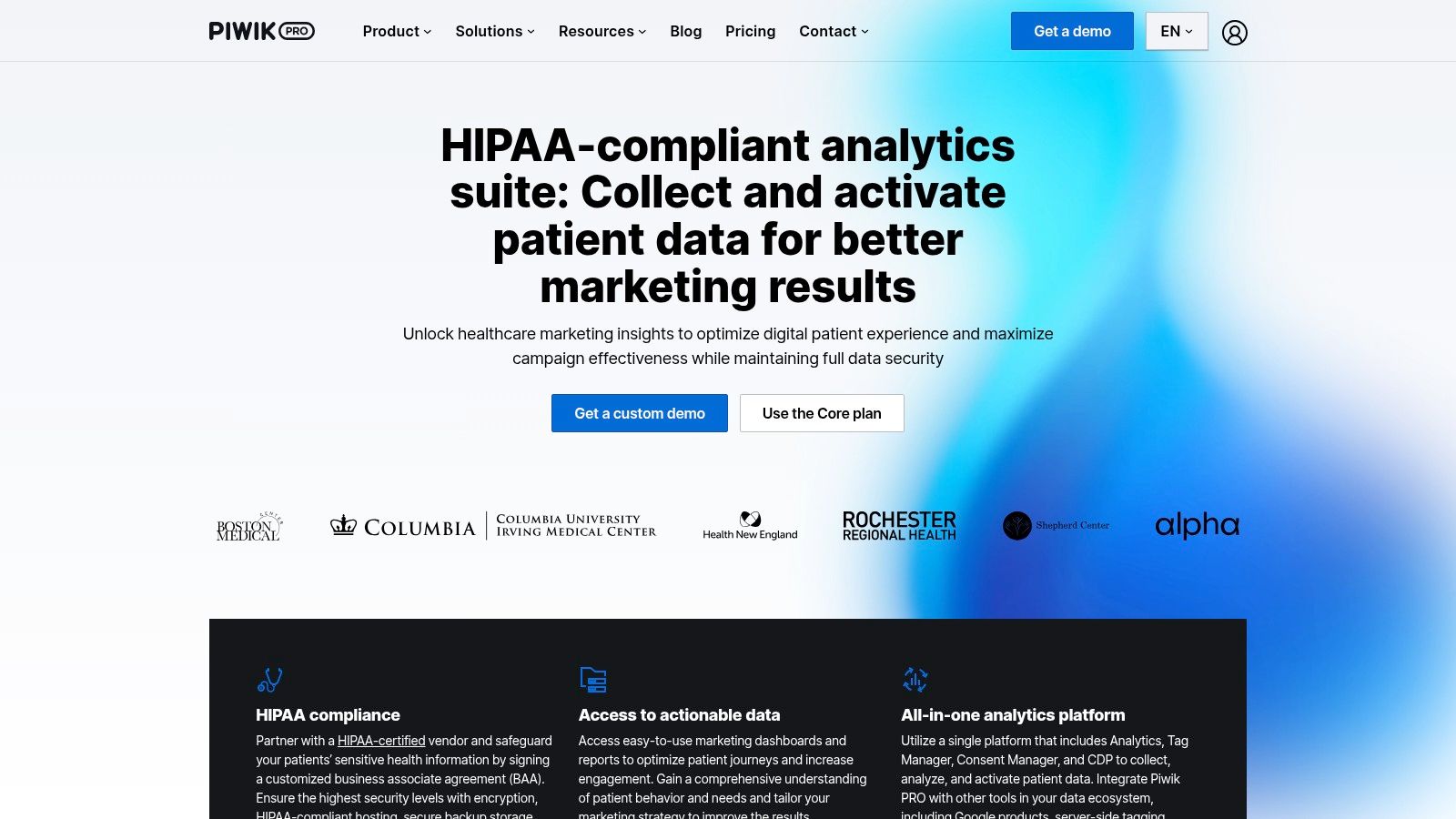
It offers both cloud and on-premise hosting, giving UK organisations the flexibility to choose a solution that aligns with their data governance policies. Its free Core plan is generous, offering most of the essential features with a limit of 500,000 monthly actions, making it accessible for startups and SMEs. The platform’s user-friendly dashboard and integrated Consent Manager simplify the process of collecting and analysing data in a compliant manner.
Key Features & Considerations
- Robust Compliance: Built-in compliance with GDPR, CCPA, and HIPAA, featuring an integrated Consent Manager to streamline user consent collection.
- Full Data Ownership: You retain 100% ownership of your data, with options to host in secure private clouds or on your own infrastructure.
- User-Centric Interface: The dashboard is known for being intuitive and easy to navigate, lowering the barrier to entry for teams new to advanced analytics.
- Generous Free Tier: The Core plan provides a substantial feature set for free, making it a cost-effective choice for many businesses before needing to upgrade to the custom-quoted Enterprise plan.
Website: https://piwik.pro/
4. Clicky
Clicky has carved out a niche as a real-time web analytics tool, making it one of the most straightforward Google Analytics alternatives available. It's designed for users who desire immediate, easy-to-digest data without the steep learning curve often associated with more complex platforms. Its key selling point is its "up-to-the-minute" dashboard, which provides a live look at website traffic, a feature particularly valued by those who need to monitor events or campaigns as they happen.
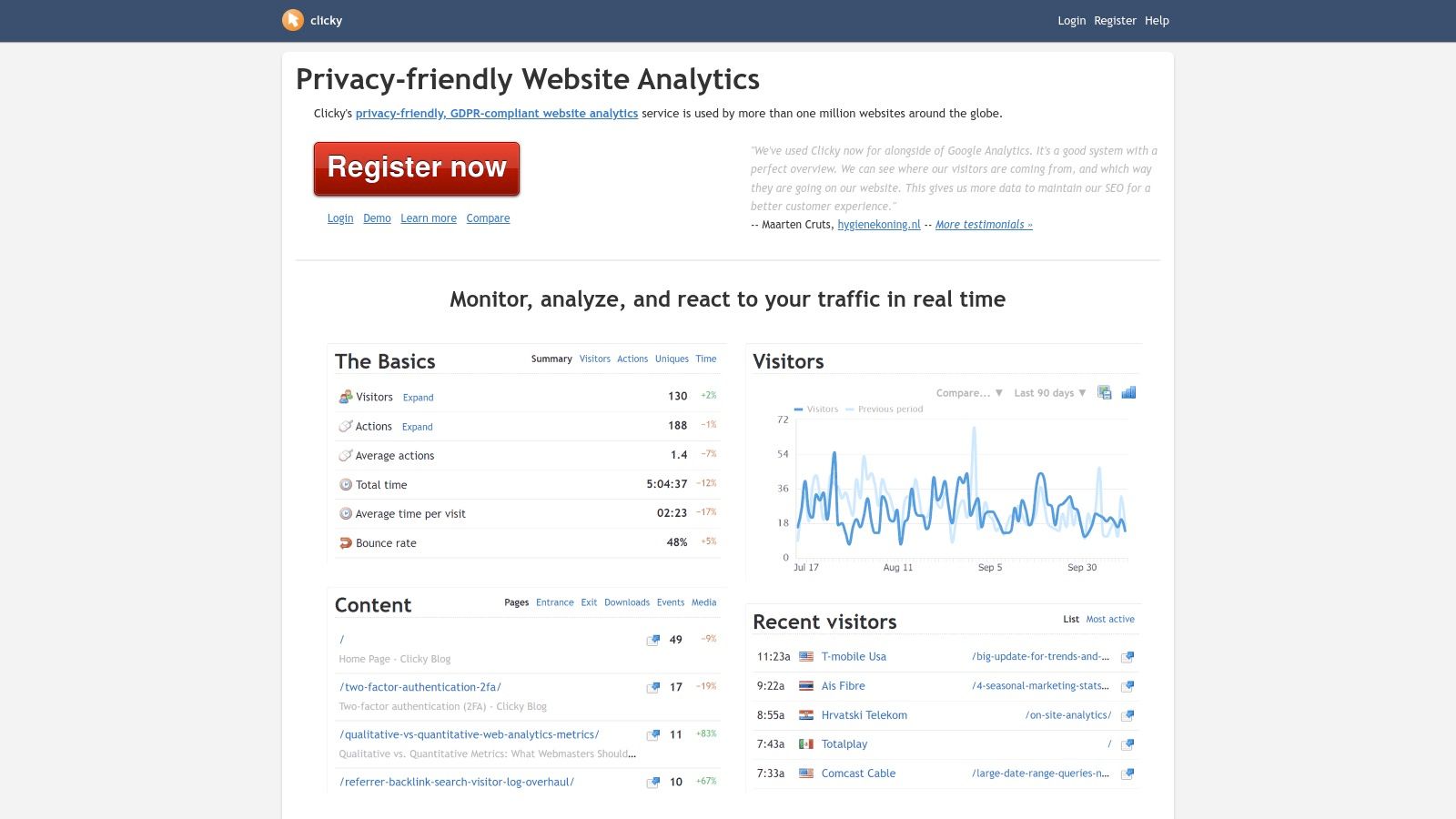
The platform is renowned for its simple, clean interface that presents visitor data in an exceptionally clear format. Beyond standard metrics, Clicky includes valuable features like heatmaps and uptime monitoring even in its more accessible plans. While it offers a generous free plan suitable for small websites or blogs, larger sites will need to subscribe to one of its affordable paid tiers to access premium features and higher pageview limits. This makes it an excellent starting point for startups and SMEs before they scale.
Key Features & Considerations
- Real-Time Reporting: Instantly view visitor activity, including detailed logs for every visitor, without any latency.
- User-Friendly Interface: The dashboard is exceptionally simple to navigate, making analytics accessible to non-technical users.
- Built-in Heatmaps: Analyse visitor behaviour on-site with per-page heatmaps, a feature often requiring a separate tool or higher-tier plan elsewhere.
- GDPR Compliance: Clicky is fully compliant with GDPR, offering features like IP anonymisation and respecting Do Not Track headers.
Website: https://clicky.com/
5. Heap
Heap distinguishes itself in the crowded analytics space by offering a powerful "codeless" approach to data collection. As an alternative to Google Analytics, it automatically captures every user interaction on your website or app – every click, tap, swipe, and form submission – without needing you to manually tag events beforehand. This comprehensive, retroactive data capture means you can answer new questions about user behaviour without waiting for new tracking to be implemented.
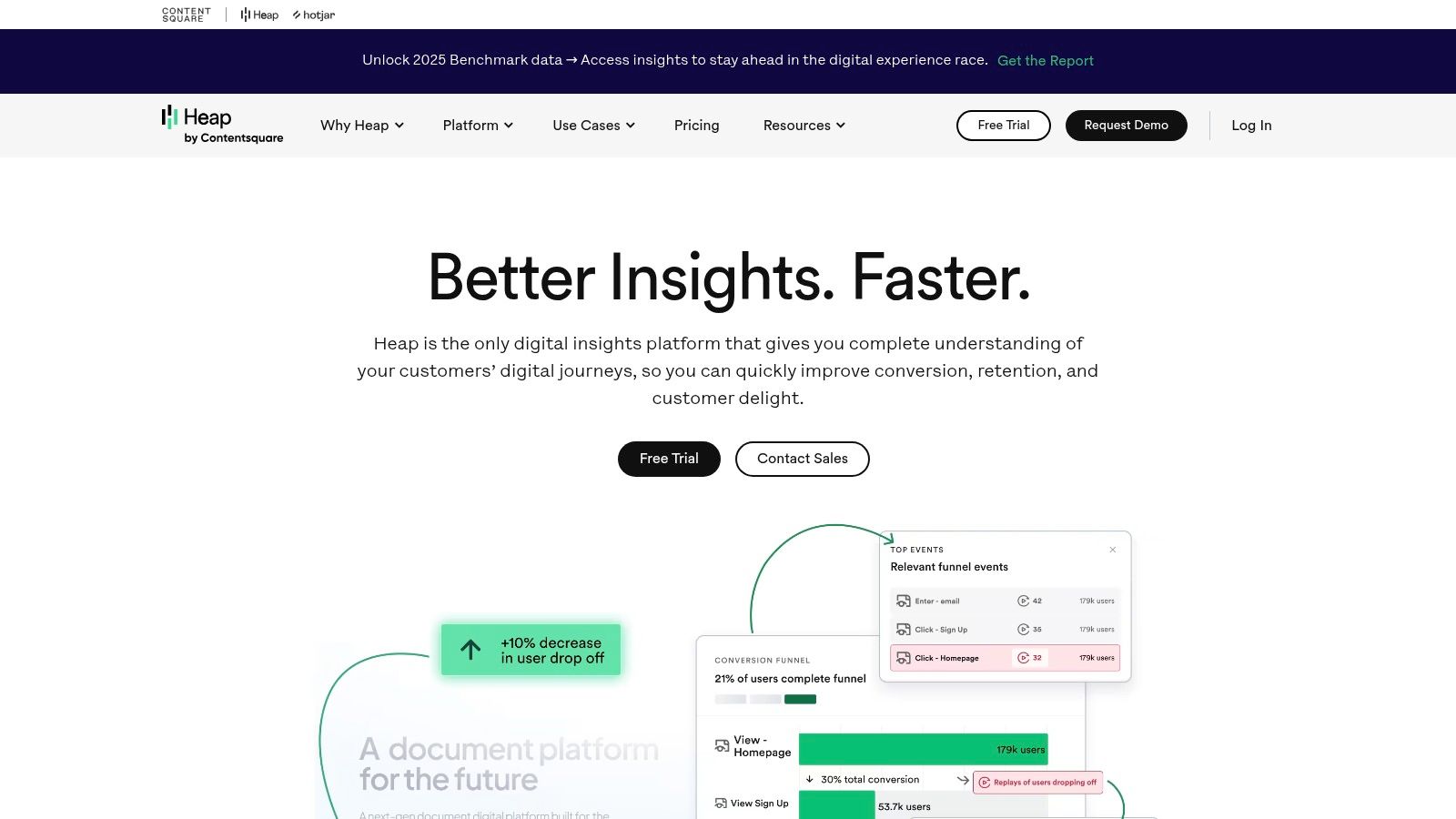
This digital insights platform is designed to provide a complete understanding of the customer journey, combining quantitative data with qualitative insights through features like session recordings and heatmaps. Heap offers a generous free plan, making it accessible for startups and small businesses to begin analysing user behaviour deeply. While its advanced features and paid plans can be a significant investment, the initial learning curve is offset by the power of its automatic data capture.
Key Features & Considerations
- Autocapture: Automatically collects all user behavioural data, eliminating the need for manual event tracking and providing a complete dataset from day one.
- Data-Informed Product Decisions: Provides tools like funnels, user segmentation, and retention analysis to help product teams understand user engagement and identify friction points.
- Qualitative Insights: Integrates session replays and visualisations to connect the "what" with the "why" of user actions.
- GDPR Compliant: Offers features and controls to help businesses manage data privacy and adhere to regulations like GDPR.
For software-as-a-service companies, tools like Heap are invaluable for understanding user adoption and retention, complementing insights gathered from dedicated SaaS SEO tools.
Website: https://heap.io/
6. Plausible Analytics
Plausible Analytics presents itself as a simple, lightweight, and open-source solution, making it one of the most straightforward Google Analytics alternatives available. It is specifically designed for privacy-conscious website owners who want essential insights without the complexity of traditional analytics platforms. By not using cookies and avoiding the collection of personal data, it ensures automatic compliance with GDPR, CCPA, and PECR, which is a significant advantage for businesses operating in the UK and Europe.
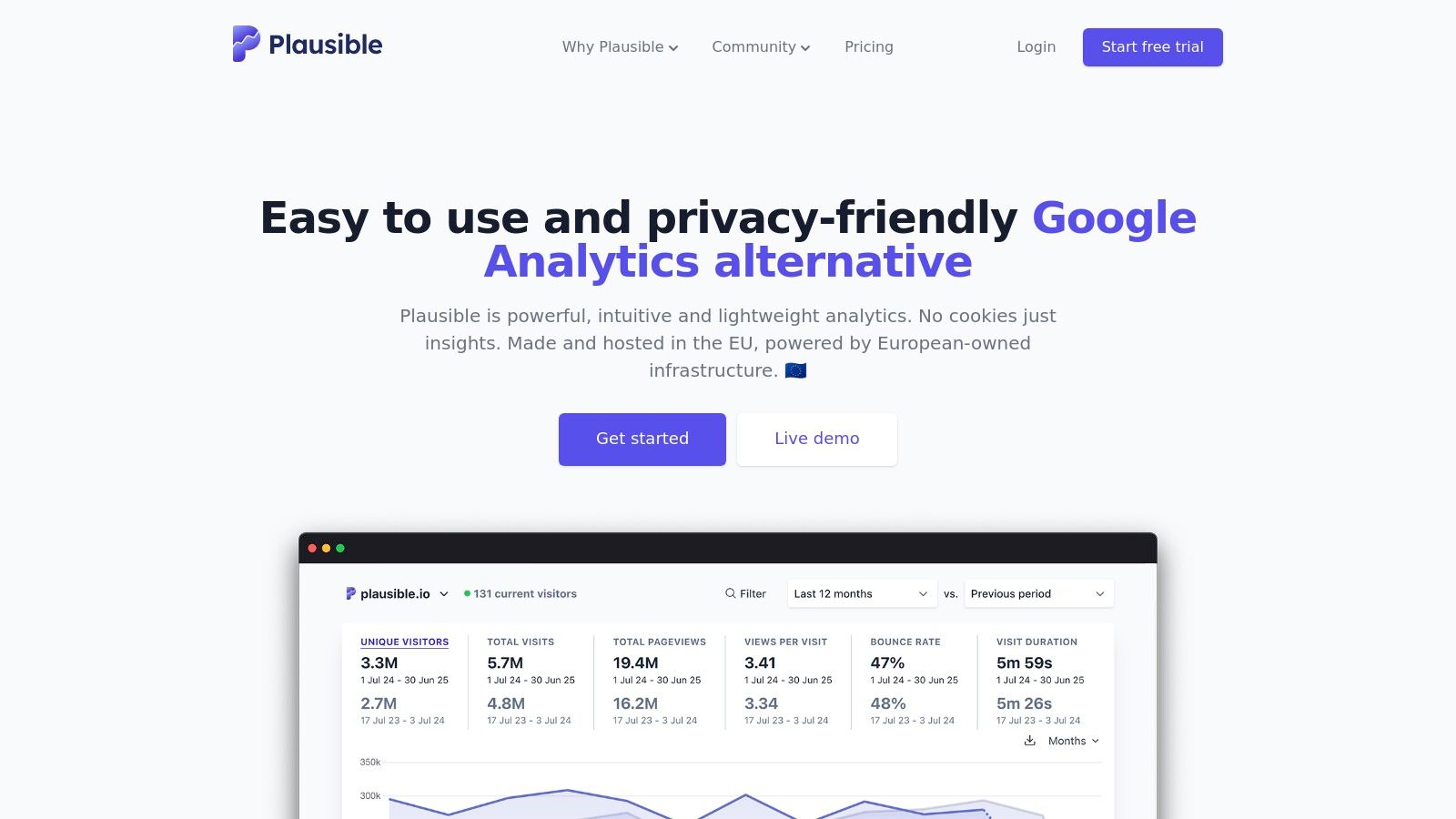
The platform’s main appeal lies in its simplicity and focus on user privacy. The tracking script is incredibly small (under 1KB), meaning it has a negligible impact on your website's loading speed. All the important metrics are displayed on a single, clean dashboard, making it easy to understand your website's performance at a glance without being overwhelmed by layers of reports. While it does not offer a free plan, its pricing is transparent and based on monthly page views, starting from £9 per month.
Key Features & Considerations
- Extremely Lightweight: The small script size ensures your website performance is not compromised.
- Privacy by Design: No cookies are used and no personal data is collected, meaning you don't need a cookie banner or consent pop-ups.
- Simple & Clear Reporting: A single-page dashboard presents all essential metrics like unique visitors, bounce rate, and visit duration in an easy-to-digest format.
- Open-Source and Self-Hostable: For those with technical expertise, Plausible offers a self-hosted Community Edition, giving you full control over your data.
Website: https://plausible.io/
7. GoSquared
GoSquared presents itself as a streamlined and user-friendly web analytics platform, carving out a niche as one of the key Google Analytics alternatives for businesses that value real-time data and simplicity. Its core strength lies in providing an incredibly intuitive interface that displays live visitor metrics, making it easy to understand website traffic at a glance. This focus on immediate, accessible insights makes it an excellent choice for teams that need to react quickly without getting lost in complex reports.
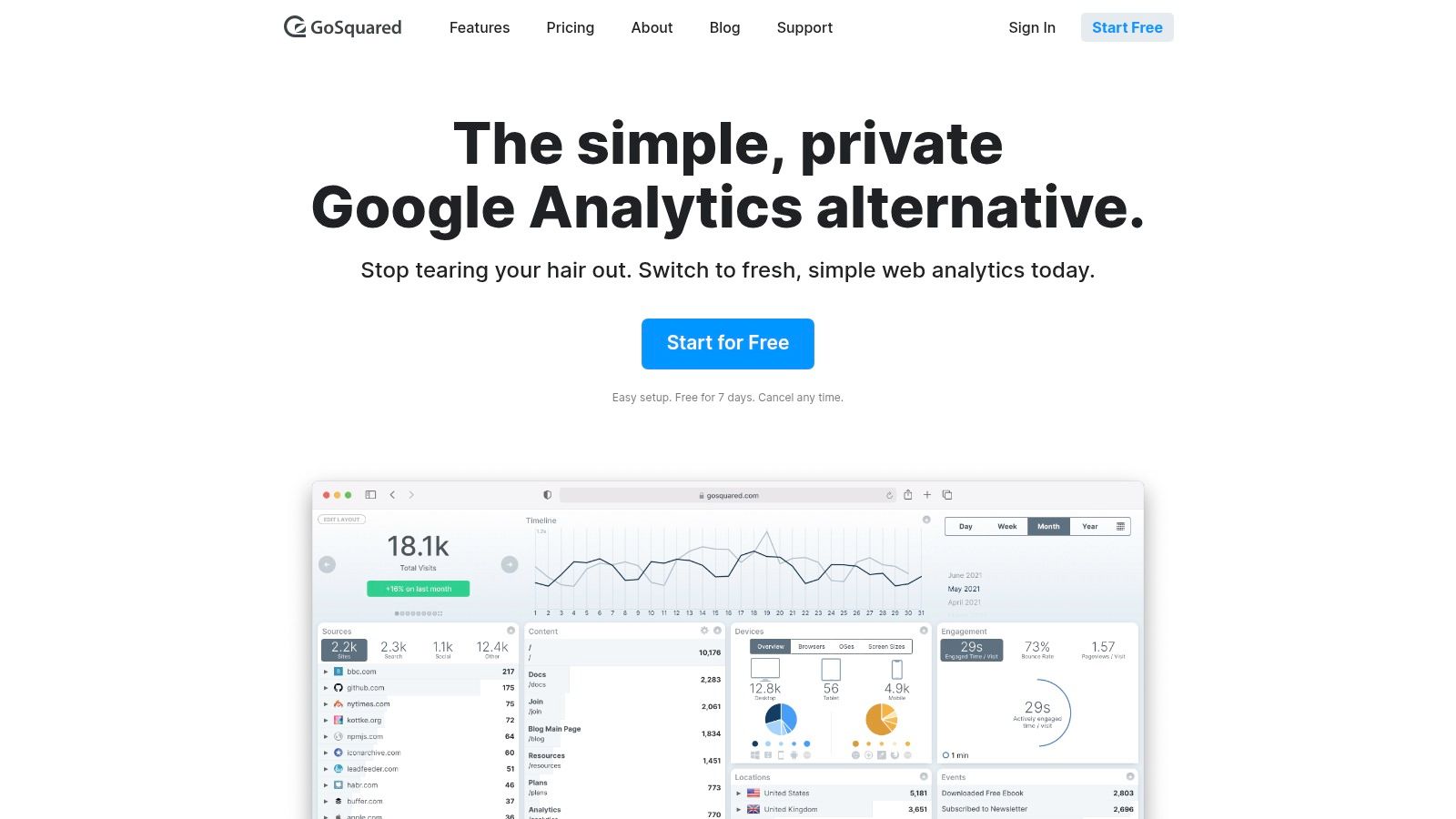
The platform is designed for easy setup and integrates seamlessly with popular content management systems and website builders like WordPress, Shopify, and Squarespace. GoSquared is fully GDPR compliant, offering peace of mind to UK and European businesses. While it may not have the extensive feature depth of larger platforms, its combination of analytics, live chat, and marketing automation tools provides a powerful, all-in-one suite for engaging with website visitors.
Key Features & Considerations
- Real-Time Dashboard: Monitor visitor activity as it happens, including page views, traffic sources, and user locations, all on one simple dashboard.
- Ease of Use: The platform is celebrated for its clean and intuitive user interface, requiring minimal training to get started.
- Integrated Suite: GoSquared combines analytics with live chat and marketing automation, allowing you to not only monitor but also engage with your audience directly.
- Privacy-Focused: As a GDPR-compliant tool, it ensures that your data collection methods respect user privacy regulations.
The immediate feedback from its live dashboard helps you understand which content is resonating, giving you actionable data on the top metrics to measure for on-page SEO success.
Website: https://www.gosquared.com/
8. Simple Analytics
Simple Analytics lives up to its name, offering one of the most straightforward and privacy-focused Google Analytics alternatives available. It’s designed for businesses and website owners who prioritise user privacy and want essential metrics without the complexity of larger platforms. The core selling point is its cookieless tracking; it does not collect any personal data or use persistent identifiers, making it instantly compliant with GDPR, CCPA, and PECR without needing annoying cookie banners.
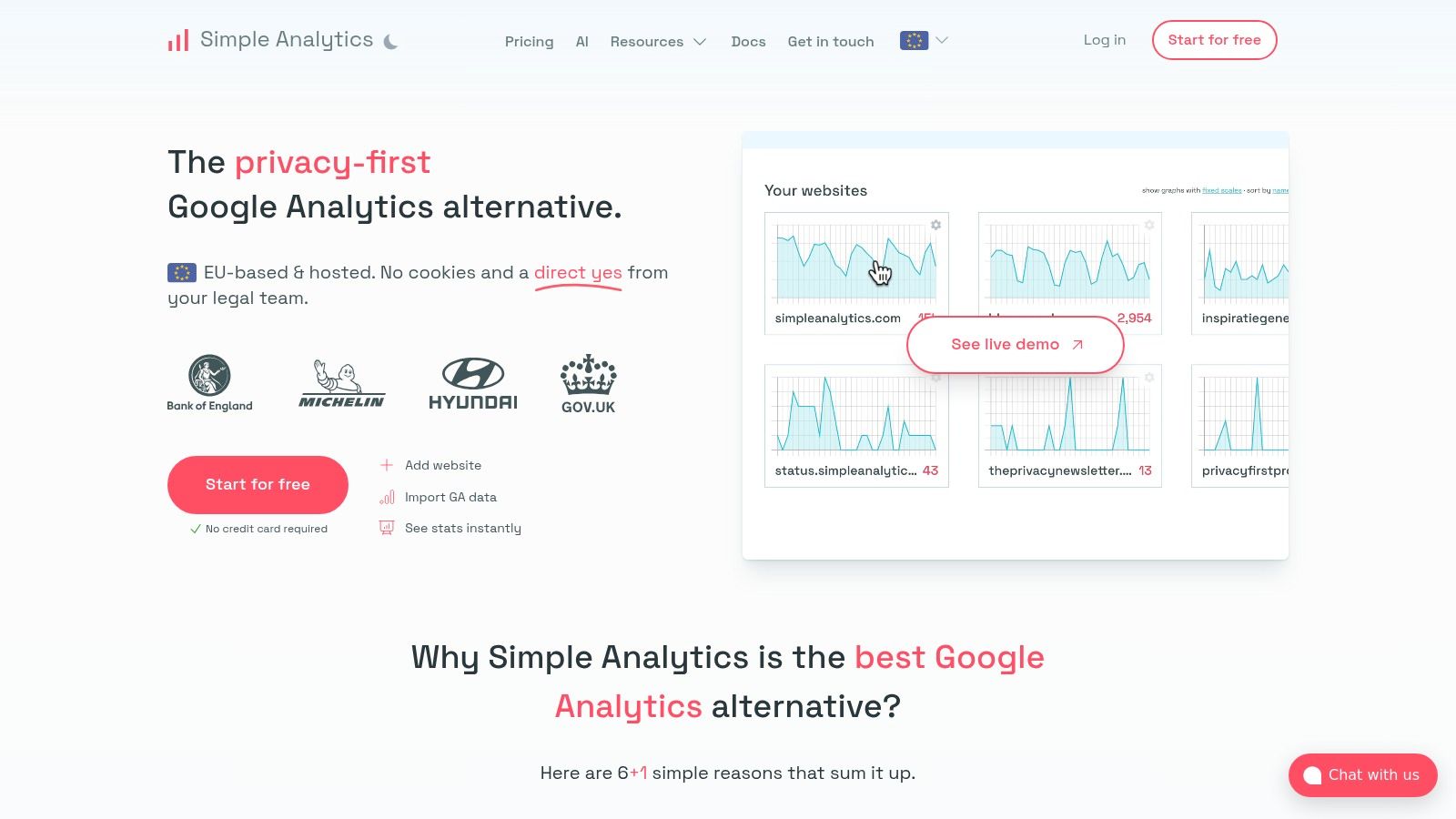
This tool is ideal for startups, bloggers, and small to medium-sized enterprises that need to understand their traffic sources, top pages, and user device types without getting bogged down in advanced analytics. The interface is clean, presenting data in a single, easy-to-digest dashboard. Its lightweight script (under 5KB) ensures minimal impact on your website's performance, a crucial factor for user experience and SEO. While it lacks the deep feature set of its competitors, its strength lies in its simplicity and ethical approach to data.
Key Features & Considerations
- No Cookies or Personal Data: The platform respects user privacy by design, avoiding the collection of IP addresses or other personal identifiers.
- Lightweight Script: A tiny tracking script ensures your site's loading speed is not negatively affected.
- Simple, Clean Dashboard: All essential metrics are presented on one page, making it incredibly easy to see what matters at a glance.
- Bypass Ad-blockers: Its tracking method is often not blocked by ad-blockers, leading to more accurate visitor counts compared to some other tools.
The platform's focus on privacy and simplicity can be particularly appealing for businesses that want to build trust with their audience. While it offers paid plans only, the investment ensures a clean, ethical analytics solution.
Website: https://simpleanalytics.com/
9. Microsoft Clarity
Microsoft Clarity emerges as a compelling and completely free Google Analytics alternative focused on visualising user behaviour. Rather than concentrating on deep quantitative metrics, Clarity helps you understand the why behind user actions on your site. It is designed to be incredibly easy to set up and provides immediate, tangible insights into how users navigate, where they get stuck, and what elements capture their attention. This makes it an invaluable tool for improving user experience (UX) and conversion rate optimisation.
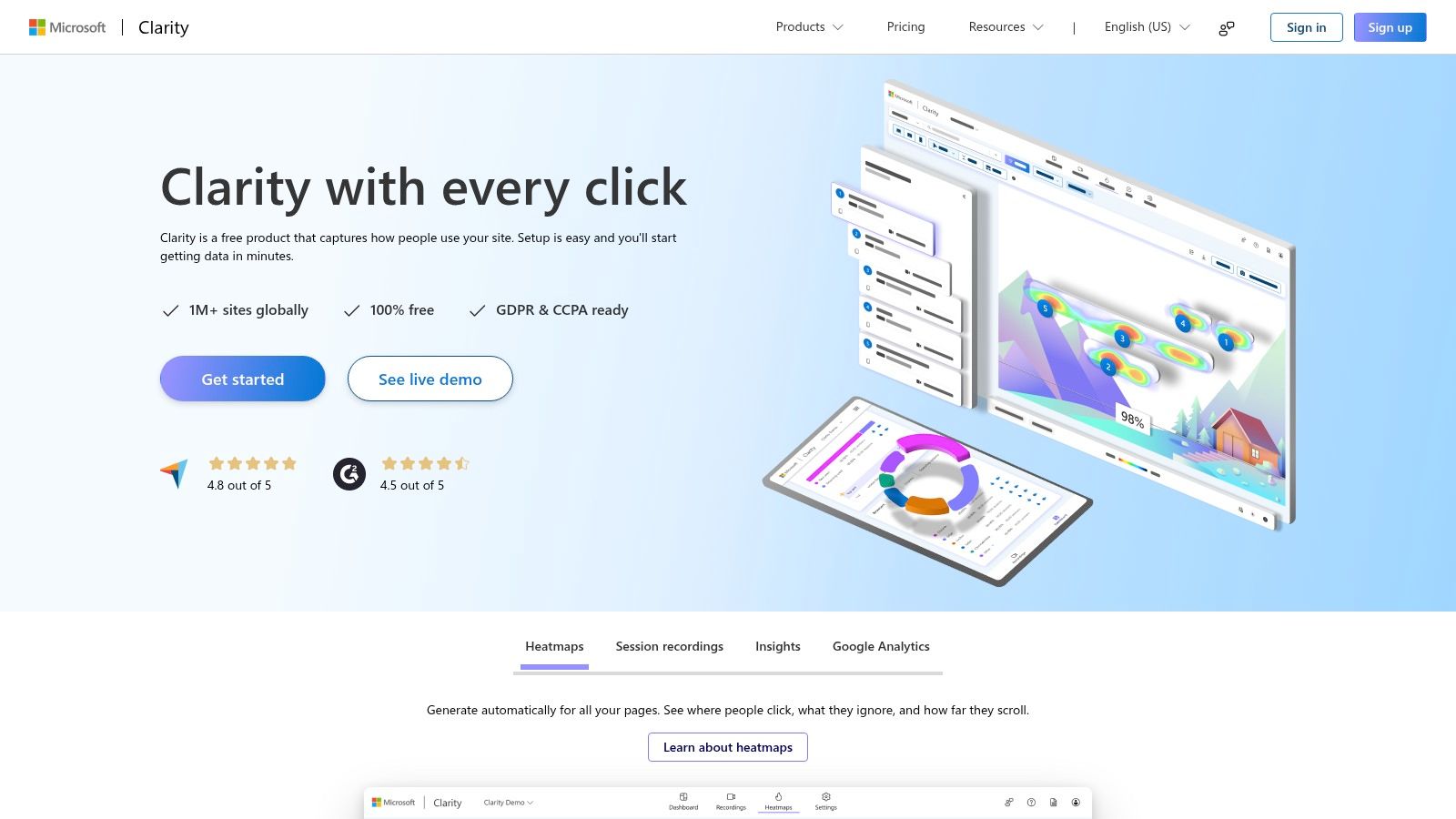
As a product from a major tech player, it offers robust, enterprise-grade features without any cost, making it highly accessible for startups, SMEs, and e-commerce businesses. Its strength lies in its qualitative tools like session recordings and heatmaps, which work alongside Google Analytics rather than completely replacing it for some users. It is built to be GDPR compliant and does not use data sampling, ensuring you see the full picture of user interactions on your website.
Key Features & Considerations
- Completely Free: Clarity is free forever with no traffic limits, providing access to powerful behavioural analytics tools without any budget constraints.
- Behavioural Insights: Its core offerings are dynamic heatmaps (click, scroll, and area maps) and detailed session recordings that let you watch user journeys as they happened.
- Easy Setup & Integration: Clarity is simple to install with a single snippet of code and integrates seamlessly with Google Analytics, allowing you to link recordings to your GA data.
- Rage Clicks & Dead Clicks: The tool automatically flags moments of user frustration, such as "rage clicks" (rapid clicking) and "dead clicks" (clicks on non-interactive elements), providing actionable UX feedback.
Website: https://clarity.microsoft.com/
10. Woopra
Woopra positions itself as a customer journey analytics platform, making it a compelling Google Analytics alternative for businesses that need to understand user behaviour on an individual level. It excels at unifying data from multiple touchpoints, including your website, mobile app, and third-party services like Salesforce or Stripe. This creates a complete, chronological profile for each user, allowing you to see exactly how they interact with your brand over time.
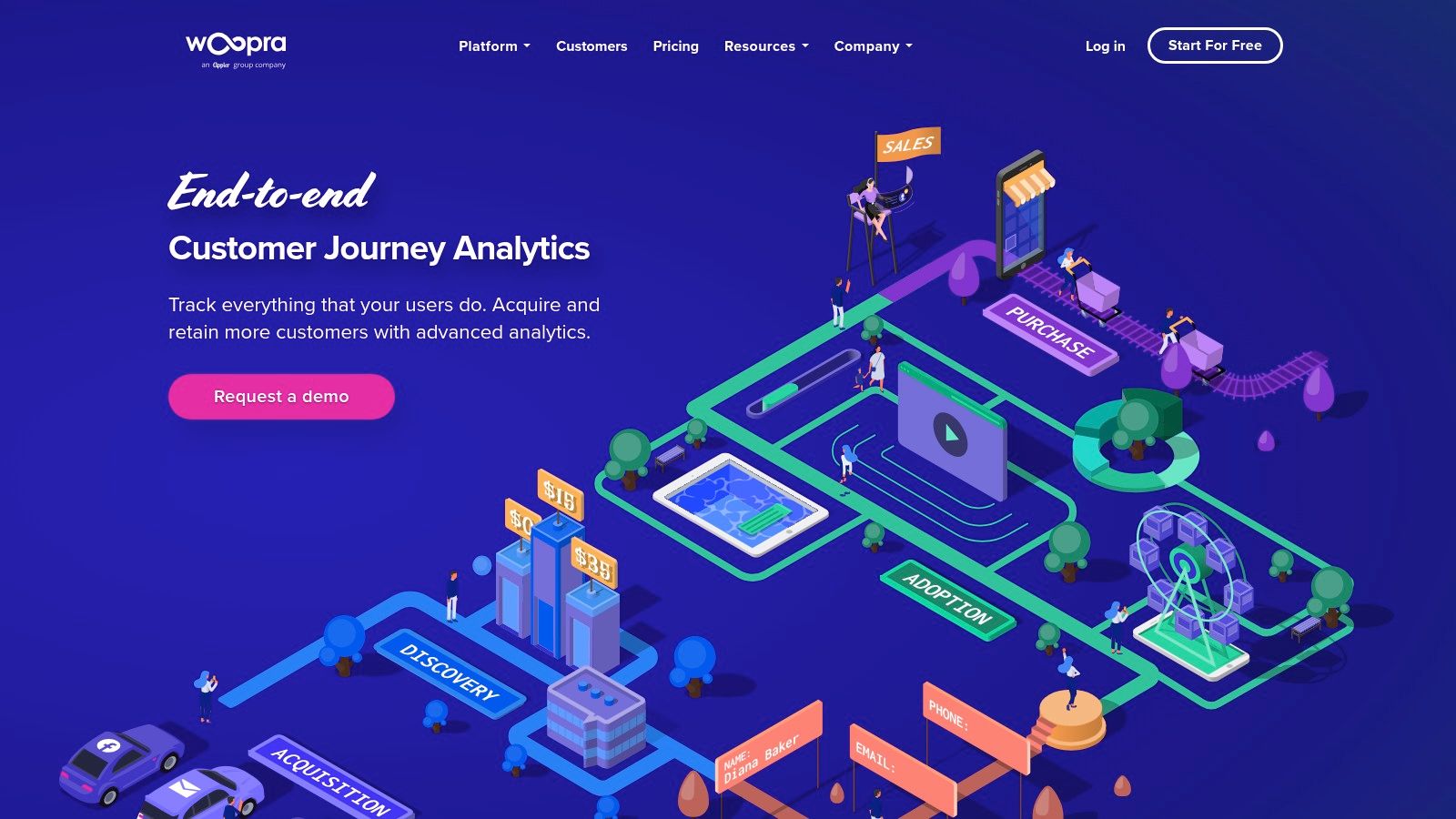
Unlike traditional analytics tools that focus on aggregated page views, Woopra's strength lies in its person-centric approach. You can build dynamic segments, analyse conversion funnels in real-time, and create retention reports to identify what keeps customers coming back. The platform offers a free "Core" plan, which is useful for startups, alongside paid tiers (Pro and Enterprise) that unlock more advanced features and higher data limits. This makes it accessible for small businesses but scalable for larger organisations.
Key Features & Considerations
- Customer Journey Mapping: Track individual user paths across your website, product, and support channels to understand the complete customer experience.
- Real-time Analytics: Data is processed and displayed instantly, allowing you to react quickly to user behaviour and campaign performance.
- Powerful Integrations: Offers over 50 one-click integrations with tools like HubSpot, Mailchimp, and Zendesk to create a unified customer data hub.
- Segmentation and Funnels: Create detailed customer segments based on behaviour and analyse funnel drop-offs to pinpoint areas for optimisation.
Website: https://www.woopra.com/
11. Mixpanel
Mixpanel focuses on product analytics, making it one of the most powerful Google Analytics alternatives for businesses wanting to understand user behaviour within their digital products and applications. Unlike traditional web analytics platforms that focus on page views, Mixpanel is event-based, allowing you to track specific actions users take. This is ideal for organisations that need to analyse user flows, measure feature adoption, and optimise conversion funnels.
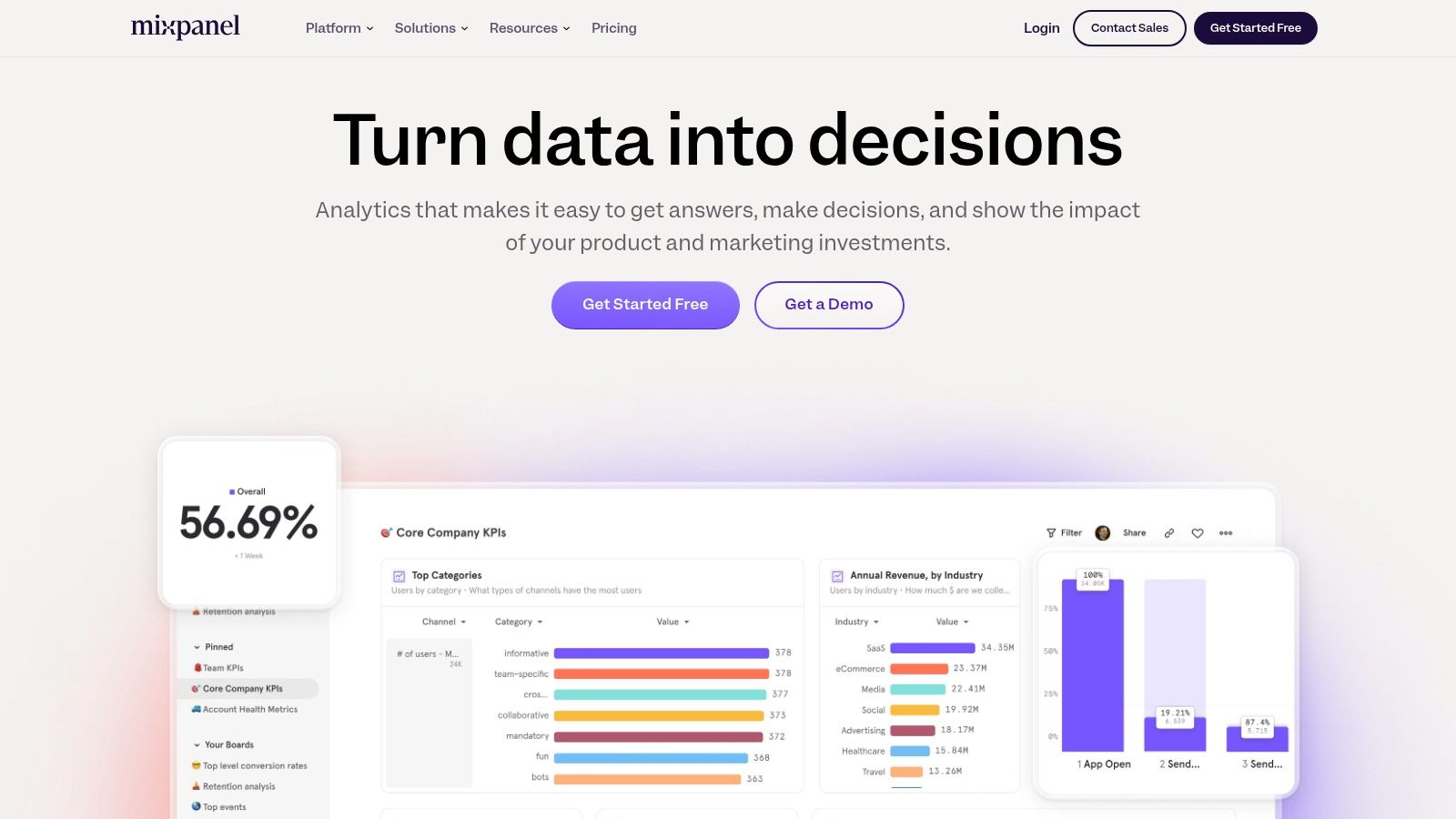
The platform is particularly well-suited for SaaS companies and mobile app developers who need granular insights into user engagement and retention. It provides powerful segmentation tools to group users based on their behaviour, enabling personalised marketing campaigns and product improvements. While it offers a generous free plan, the advanced features required for deep analysis come with paid tiers that can be a significant investment for larger businesses.
Key Features & Considerations
- Event-Based Tracking: Go beyond page views to track every interaction, such as button clicks, form submissions, and feature usage.
- Retention Analysis: Understand how well your product retains users over time with detailed cohort analysis and reports.
- Funnel and Flow Visualisation: Easily build and visualise conversion funnels to identify where users are dropping off in key journeys.
- Powerful Segmentation: Create complex user segments based on properties and events to deliver targeted experiences and communications.
The detailed user journey insights Mixpanel offers can be invaluable, especially when refining an SEO strategy for SaaS companies, as it helps connect user behaviour directly to business outcomes.
Website: https://mixpanel.com/
12. Smartlook
Smartlook offers a more qualitative approach to analytics, making it a compelling choice for businesses looking to understand the 'why' behind their data. While traditional analytics platforms show you what users do, Smartlook shows you how they do it. It specialises in user behaviour analytics through session recordings and heatmaps, providing visual evidence of user interactions, frustrations, and moments of delight on your website or mobile application.
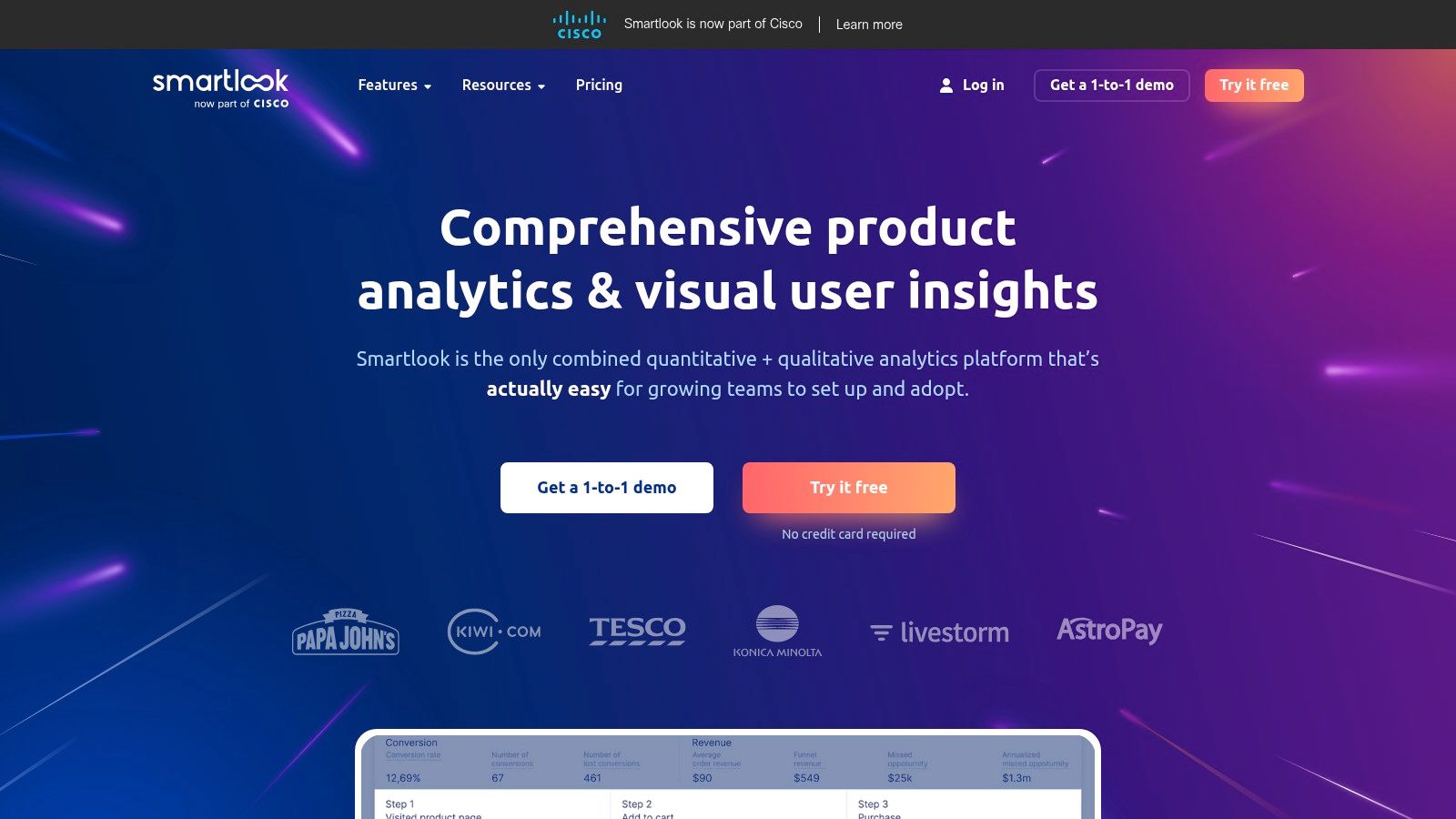
This platform is not a direct one-to-one replacement for the quantitative power of Google Analytics but serves as an invaluable complementary tool or a primary solution for teams focused on user experience (UX) and conversion rate optimisation. Its strength lies in automatically tracking all user events, eliminating the need for manual setup. This allows you to retroactively analyse user journeys and build conversion funnels without prior configuration, making it a flexible Google Analytics alternative for agile teams.
Key Features & Considerations
- Session Recordings: Watch video-like replays of individual user sessions to identify bugs, understand user struggles, and see how they navigate your site.
- Automatic Event Tracking: Smartlook automatically captures all user interactions, such as clicks and form submissions, so you can analyse them later without manual tagging.
- Heatmaps: Visualise where users click, move their mouse, and how far they scroll to optimise page layouts and call-to-action placements.
- Conversion Funnels: Build and analyse conversion funnels to see where users drop off in key processes like checkout or sign-up.
While it offers a generous free plan, more advanced features and higher data retention limits are reserved for its paid tiers.
Website: https://www.smartlook.com/
Google Analytics Alternatives Feature Comparison
| Tool | Core Features | User Experience | Privacy & Compliance | Value Proposition | Pricing |
|---|---|---|---|---|---|
| Matomo | Real-time tracking, customisable dashboards | Full data ownership, no sampling | GDPR, CCPA compliant | Self-hosted/cloud options, historical data import | Paid add-ons, technical setup for self-host |
| Fathom Analytics | Real-time reporting, lightweight script | Easy setup, simple dashboard | GDPR, CCPA, PECR compliant | No cookies or banners, fast load times | Paid plans, no free plan |
| Piwik PRO | Real-time monitoring, customisable reports | User-friendly dashboard | GDPR, CCPA, HIPAA compliant | Free core plan, integrated consent | Custom quotes for enterprise |
| Clicky | Real-time reporting, heatmaps, uptime monitor | Simple, clear dashboard | GDPR compliant | Free plan for small sites | Paid plans for larger sites |
| Heap | Auto event tracking, session recordings | Comprehensive features, user-friendly | GDPR compliant | Free plan available | Paid plans can be expensive |
| Plausible Analytics | Lightweight script, no cookies | Simple dashboard | GDPR, CCPA, PECR compliant | Open-source, privacy-focused | Paid plans, no free plan |
| GoSquared | Real-time reporting, platform integration | Intuitive interface | GDPR compliant | Easy integration, mobile compatible | Paid plans, no free plan |
| Simple Analytics | No cookies, essential metrics | Clean, simple dashboard | GDPR compliant | Privacy-friendly, no cookie banners | Paid plans, no free plan |
| Microsoft Clarity | Heatmaps, session recordings, click tracking | Easy setup, free and comprehensive | GDPR compliant | Free tool providing behaviour insights | Free |
| Woopra | Real-time customer analytics, segmentation | User-friendly | GDPR compliant | Free plan, detailed customer journey | Paid plans can be expensive |
| Mixpanel | Conversion tracking, A/B testing, segmentation | User-friendly, product-focused | GDPR compliant | Free plan, strong analytics suite | Paid plans can be expensive |
| Smartlook | Session recordings, heatmaps, event tracking | User-friendly | GDPR compliant | Free plan, multi-platform support | Paid plans required for full features |
Final Thoughts
Navigating the world of web analytics in a post-Universal Analytics era can feel like charting new territory. For years, Google Analytics was the default, the undisputed king. However, as we've explored, the landscape is now richer and more diverse than ever, offering a plethora of powerful Google Analytics alternatives tailored to specific business needs, ethical considerations, and technical capabilities.
The central theme running through our exploration of tools like Matomo, Fathom, and Plausible Analytics is the critical shift towards privacy-centric measurement. For many businesses, particularly those in the UK and Europe operating under GDPR, this is no longer a 'nice-to-have' but a foundational requirement. These platforms demonstrate that you don't have to sacrifice insightful data to respect user privacy.
Recapping the Core Choices
Your journey to find the right analytics tool is a personal one, dictated by your organisation's specific goals and resources. Let's recap the key decision points:
- For the Privacy-Conscious SME: If your primary concern is GDPR compliance and offering a transparent user experience, tools like Fathom Analytics, Plausible Analytics, and Simple Analytics are exemplary choices. They are lightweight, easy to implement, and built from the ground up with privacy at their core.
- For the Data-Sovereignty Advocate: If maintaining full control over your data is non-negotiable, a self-hosted solution like Matomo is unparalleled. It offers a feature set that rivals Google Analytics but places all data firmly within your own infrastructure.
- For the Enterprise with Complex Needs: For larger organisations requiring deep, granular analysis, compliance features, and robust support, Piwik PRO and Heap offer comprehensive suites that can handle complex data segmentation, user journey analysis, and consent management at scale.
- For Visual and Behavioural Insights: If you need to understand why users act the way they do, qualitative tools like Microsoft Clarity, Smartlook, and GoSquared are invaluable. Their session recordings and heatmaps provide a visual narrative that quantitative data alone cannot.
Key Considerations Before Making Your Move
Choosing your new analytics partner is just the first step. Successful implementation requires careful planning. Remember to consider:
- Migration Strategy: How will you transition from your existing setup? Do you need to run both platforms in parallel for a period to validate data accuracy?
- Team Training: Your team is used to Google Analytics. Ensure you allocate time and resources for training them on the new platform's interface, terminology, and reporting capabilities.
- Integration with Your Tech Stack: Verify that your chosen alternative integrates smoothly with your other essential tools, such as your CRM, e-commerce platform, and advertising channels. For instance, regardless of the analytics platform chosen, mastering Google Ads conversion tracking remains a fundamental aspect of measuring digital marketing success.
- True Cost of Ownership: Look beyond the monthly subscription fee. For self-hosted options, factor in server costs, maintenance time, and security updates. For all platforms, consider the cost of implementation and training.
The departure from a one-size-fits-all analytics solution is a positive development for the digital marketing industry. It encourages us to be more intentional about our data collection practices, to prioritise user privacy, and to select tools that genuinely align with our business objectives. Whether you need the simplicity of a minimalist dashboard or the powerful segmentation of an enterprise-level suite, the perfect Google Analytics alternative is out there waiting for you.
Feeling overwhelmed by the options or need expert guidance on migrating and making the most of your new analytics platform? At Bare Digital, we specialise in helping businesses in Cambridgeshire and beyond implement data-driven strategies that respect user privacy and drive growth. Visit Bare Digital to learn how we can help you build a smarter, more ethical analytics framework.


